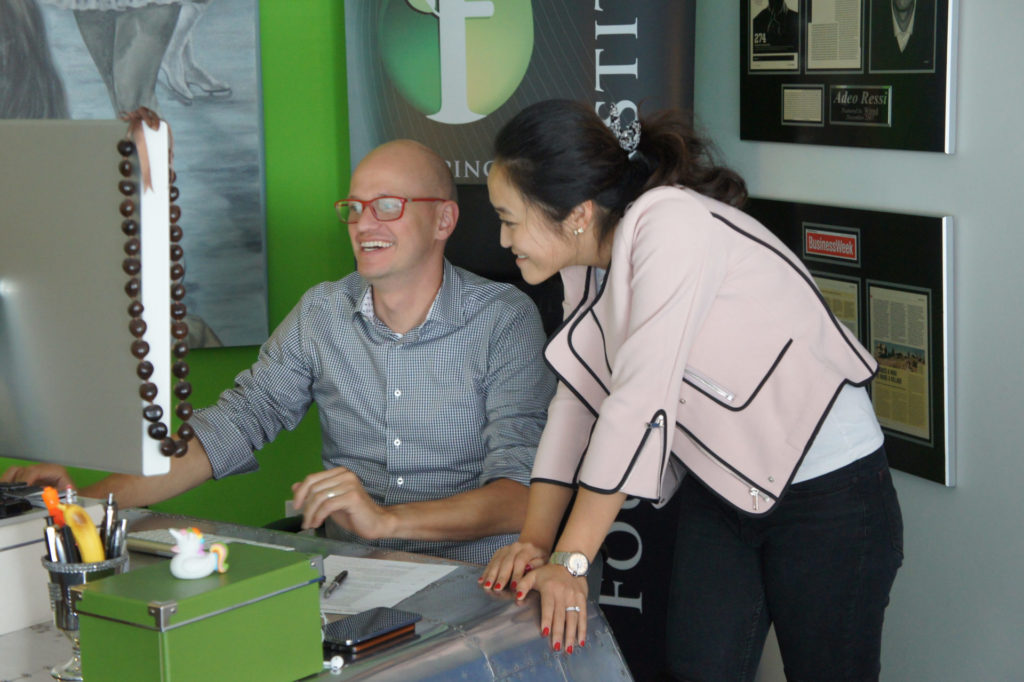All Together. Now. – How We Can Mobilize Startups to Help Combat The COVID-19 Outbreak
In the midst of the current turmoil, uncertain populations across the world are coming together to seek hope in the promise of united, collaborative action. We are also, in the heat of this moment, made profoundly aware that in joining together to weather this storm not even one among us may be absent from the effort.
To protect lives, livelihoods, communities, and businesses worldwide we will require the combined efforts of citizens, governments, and international organizations. The bell tolls not least for the tech industry, then. In fact, as the drivers of the global economy and the catalysts of innovation, we likely have the opportunity to play a pivotal role in combating the spread of this virus. Big tech, venture capitalists, and the rest of the startup community, must come together to mobilize startups for this monumental mission.
To do so, we should follow these three steps.
First, startups must focus their efforts on these useful areas
Startups must be on the front line of the fight. From autonomous robots disinfecting hospitals, to virus-resistant nanoparticles used in masks and scrubs, to video conferencing and telework tools to cope with social distancing, innovations from startups have taken the lead in helping us cope with and contain the spread of COVID-19. These entrepreneurs must rise to the occasion, building companies and products that focus on the following three areas: supporting the broader effort of containment, equipping our healthcare workers with the tools they need, and adaptation.
Supporting containment efforts
The United States has surpassed Italy and China to become the country with the most confirmed cases of COVID-19 in the world. Countries like South Korea have seen great success in stopping the spread of the virus through a combination of strict social distancing measures, as well as (sometimes controversial) technology for tracking patients.
Startups working on containment solutions should focus on helping stop the spread of COVID-19 amongst and throughout populations. These types of projects could include artificial intelligence spread modeling, symptom tracking solutions, chatbots for diagnoses, and people-tracking with nearby infection notification. As an example, Italian startup Paginemediche recently launched a coronavirus diagnostic chatbot, and so did the Centers for Disease Control (CDC) in partnership with Microsoft.
Getting healthcare workers the tools they need
US healthcare workers are sounding the alarms that they are running out of protective gear to keep vital hospital workers safe, and Doctors Without Borders made a similar plea for their European colleagues as a lack of supplies has led to a high rate of infection amongst health professionals in countries like Spain and Italy.
Startups need to innovate solutions to help healthcare systems cope with the growing number of patients expected to need treatment. This could include bulk area sanitation technology (infrared or ultraviolet); virus resistant nanoparticles for health worker protective gear; technology that speeds up vaccine manufacturing and delivery; as well as low-cost and swift production methods for ventilators, oxygen supply solutions and hospital beds.
Techfit, a startup based in Medellín, Colombia and Daytona Beach, Florida is working with researchers at the University of Antioquia in Medelín to develop low-cost, easily sourceable ventilators for hospitals. They are open-sourcing their project on their blog and have collaboration requests from innovators in other Latin American countries with low ventilator stockpiles.
Helping all to adapt
One in four Americans is now under a ‘shelter in place’ order, and thousands of companies are scrambling to make their workforces remote. In order to help populations affected by quarantines and other disruptions, startups should look to create products that help people adapt to their new reality.
These products could include digital teleworking tools; home-schooling solutions; safe food delivery solutions; therapy and stress coping solutions, as well as solutions for symptom tracking. Telehealth therapy apps for example have seen a spike in users, and teachers are leaning on virtual tools to help continue their pupils’ education.
The tech community should encourage and incentivize entrepreneurs to build companies in the above areas as well. For our part, Founders Institute has begun encouraging our portfolio companies, as well as companies outside our network, to develop solutions to public health problems through our Public Health Fellowship. The program offers zero-fee access to FI programs to those entrepreneurs working worldwide on solutions for curing, preventing, and mitigating threats to public health.

Second, we need to increase funding to support innovators working to beat COVID-19
If startups are at the vanguard, their work must be bolstered by the conscious efforts of large corporations, VCs, governments, and international organizations.
For us tech investors purportedly committed to the global good, our industry has a once-in-a-lifetime shot to put our funds where our mouth is. With not a moment to lose, we must actively and aggressively provide financial support to the innovators that are working to combat the coronavirus.
A number of accelerators and innovation funds have already set a noteworthy and noble example. The Coalition for Epidemic Preparedness Innovations (CEPI) – a public, industry and charitable organization – may top the list. Moderna, a small biotech company based near Boston, and at least three other vaccine projects have turned to CEPI to fund their vaccine development, according to Financial Times
Moderna was mentioned in the article for its swift and encouraging achievements thus far in the global race to find a COVID-19 vaccine. The story also pointed out, however, that Moderna could not “shoulder the costs of creating a new Covid-19 vaccine on its own,” and that even big pharmaceutical companies often do not invest in emergency vaccines for outbreaks without additional public funding – given “the chances of cashing in are small.” When Moderna went to CEPI, the organization released a funding call to raise $2 billion to develop a COVID-19 vaccination.
Other COVID-19 funding initiatives are also commendable. On March 10, the Bill and Melinda Gates Foundation, Wellcome and Mastercard announced the launch of COVID-19 Therapeutics Accelerator. Backed by a $125 million investment fund, the accelerator looks to identify, assess, develop, and scale-up treatments for COVID-19. The United Nations’ platform AI for Good Global Summit is also collaborating with startups on a coronavirus AI challenge with Omdena to explore how AI can improve policy decision-making during pandemics.
Sam Altman, CEO of OpenAI, recently announced a fund for startups working on, among other things, swift production of ventilators, masks and gowns, as well as novel approaches to vaccine development. Finally, The European Commission recently provided fast-track funding to startups and SMEs that are working towards combating the coronavirus via its European Innovation Council Accelerator.
In order to successfully combat the virus, it will be vital to help companies swiftly iterate and scale COVID-19-related solutions, and we therefore need to drastically increase these types of funding initiatives. Large corporations, VCs and governments must step forward to make more funding available now to qualified projects.
Lastly, we need greater collaboration between big industry and startups
The decisive role of startups in this effort depends upon an equally vital part to be played by big tech, and this goes beyond funding. Big tech must additionally look to assist startups working on COVID-19-related projects by providing free or reduced-cost access to valuable tech tools that can empower rapid experimentation and scalability.
Biotech giant GlaxoSmithKline, for example, recently announced that it has made its pandemic vaccine adjuvant platform technology available to the CEPI-backed companies working to develop a COVID-19 vaccine. The technology helps boost the immune response to vaccines, creating “stronger and longer lasting immunity against infections than the vaccine alone,” according to GSK.
On the flip side, Hong Kong based AI healthcare startup Insilico Medicine recently opened its drug compound database to pharmaceutical companies worldwide to help speed up identification of a COVID-19 cure.
This type of open collaboration between startups and big industry is imperative to saving lives. Going forward, startups and industry should be more open to sharing knowledge, actively seek to open channels of communication, and create more partnerships focused on solving this shared global crisis.
As the COVID-19 outbreak continues to demand global collective action on an unprecedented scale, Founders Institute believes that the tech world’s extraordinary capacity to build breakthrough technology confers upon us an extraordinary responsibility to lead the fight. We also hold fast to the hope that current adversity will ultimately teach us profound lessons about how to come together to solve the globe’s most pressing issues.
The important thing is that everyone does their part. Now.
This article was authored by Adeo Ressi, CEO at Founder Institute



